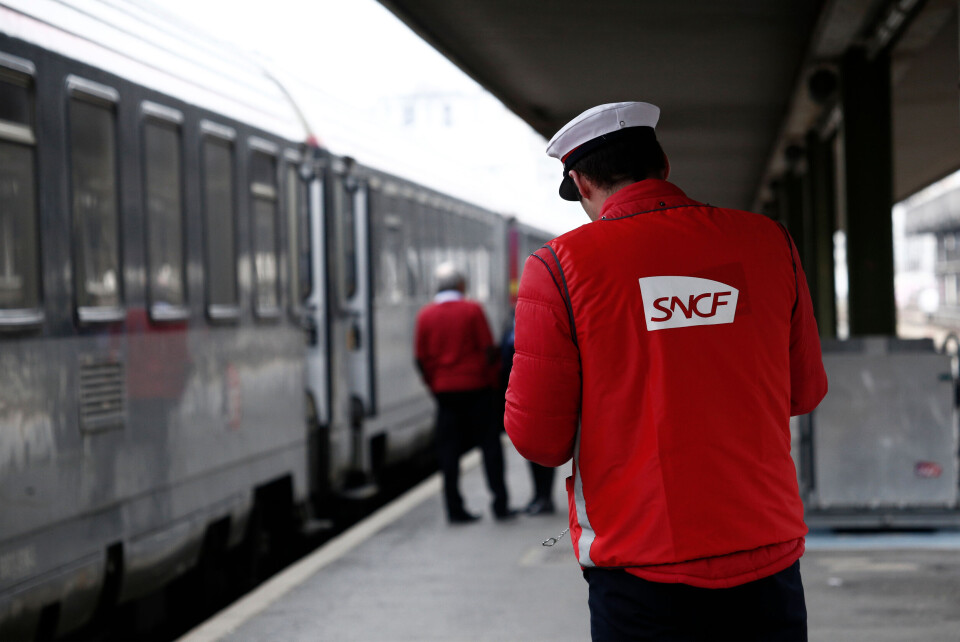-
Roadside noise cameras await approval to start issuing fines for loud vehicles in France
The devices known as meduses already exist in several cities but so far have only been ‘instructional’
-
White storks make strong return in France via nest ‘platforms’ and clipped wings
The Ligue pour la Protection des Oiseaux shares the conservation challenges in saving these birds from extinction
-
Hosting scheme in south-west France lets newcomers sample lifestyle
Households in nine Dordogne communes volunteer under Mes Nouveaux Voisins scheme
Why it is a good idea to carry ID when travelling on French trains
French railway operator SNCF has fined travellers for not having an accepted form of ID, even though they had a valid e-ticket for the journey.

Did you know that French railway operator SNCF can fine you if you travel on its trains without the correct identification, even if you have a valid e-ticket?
Consumer association 60 Millions de Consommateurs has warned travellers to always carry their ID card, passport, or carte de séjour, to avoid being out of pocket.
Carte Vitale ‘not valid’
It highlighted the case of a young adult who was travelling with her mother on a high-speed TGV service between Paris and Vannes last year. Despite having a valid e-ticket, a conductor asked to see the young woman’s ID.
The conductor asked to see the young woman’s ID to make sure she had not wrongly benefited from an age-related discount.
The SNCF offers discounts deals for people aged between 12-27 and for over 60s.
As she did not have the ID on her (and only had a photo of it on her phone), she showed the conductor her carte Vitale instead, which is listed as an acceptable form of identification on the relevant government website page.
However, the conductor said that he could not accept it, and fined her €140. He did say that the women could get a refund on the fine at an SNCF counter in a station.
The two later found out that this was incorrect. The mother, named Anne-Françoise M., told the association: “At the counters in Vannes, Paris-Saint-Lazare, and Paris-Montparnasse, we were refused a refund.
“The fine, which I consider to be unfair, on top of the conductor’s lie, has totally discredited the SNCF in my eyes.”
Read also: Train tickets for the French summer season now on sale
Was SNCF wrong not to accept the carte Vitale as a form of ID?
Although certainly inflexible, SNCF was not breaking the law. Each company in France can choose from the official list which ID it accepts as valid, as stated on the service-public.fr website.
Just because a form of ID is listed as a possible valid document on the government site, individual companies are not forced to accept it.
In its terms and conditions, SNCF makes it clear that “the passenger in whose name the e-ticket is issued must be able to present a valid identity document with a photo: either an identity card, a passport or a carte de séjour (residence permit)”.
It also told 60 Millions de Consommateurs that photos or scans of identity documents are not accepted.
This means that when travelling on SNCF, you must have:
- A valid ID card, passport, or carte de séjour (residence permit), ready to prove your identity.
A Carte Vitale, a driving licence, birth certificate, electoral card, or other forms of ID are not valid (even if they are accepted by other companies).
Can I get a refund if I am fined for this?
SNCF says that passengers can submit a refund request via its website within three months of the incident. If the request is accepted, the company should refund you within a few weeks.
You could also try to ask for a refund at a station (although, as Anne-Françoise M. found out, this is not guaranteed).
If you are not satisfied with the response, you can contact the SNCF mediator after one month has passed since your refund decision.
You can contact it via its online form or by registered post at the following address: Médiation SNCF, TSA 37701, 59973 Tourcoing Cedex.
Related articles
Why are France’s new identity cards translated into English?
All owners of French properties must fill in this new tax-site form
How to apply for a ‘numéro fiscal’ for your first French tax return
























